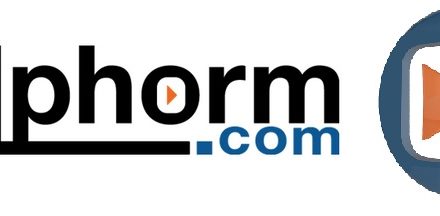You are intrigued by the accounts, the elements of a balance sheet, and everything related to accounting, and you aspire to follow a course in this field. Nevertheless, you already have a very busy life. With your job or internship, the children or your hobbies, you don't have enough time to travel to college, to receive the necessary theoretical lessons. What you need is to have your remote accounting training, and precisely in this article, we explain to you what are the advantages of this method.
Remote accounting training: how does it work?
Have a study path while working is something common these days. However, the constraints that workers encounter in pursuing a face-to-face course are numerous, and make them immediately abandon this idea of going to university, in particular:
- travel problems related to transport and traffic jams;
- mismatch between class hours and those of the person's work;
- the number of places not very high in the face-to-face course.
Fortunately, nowadays there is a way to study remotely compatible with the life that students lead, especially :
- correspondence studies;
- online studies.
Otherwise, lonline studies are a better choice, which takes advantage of technological development and the advantages of the Internet. This is why it is the most preferred choice by distance learning students. Thus, universities offer access to online course platforms in accounting. These give you the chance to get a degree in accounting, and related trades such as:
- accounting assistant ;
- accountant ;
- accountant specializing in finance and accounting;
- accounting assistant;
- Internal Auditor ;
- tax specialist;
- Financial Advisor.
Moreover, these courses which are in the form of videos, or PDF, are regularly updated by the establishments. This is to ensure that the knowledge and skills acquired are on the agenda, while avoiding the difficulties encountered by students during their trips to college. On the other hand, it should be noted that these courses lead to recognized certificates and diplomas which help to revive his career or even redirect it.
What are the benefits of distance learning accounting?
Studying remotely gives you the opportunity to do things at the pace you want. Indeed, it is not easy to lead a professional or parenting life while juggling university studies. But thanks to online training, you will have the possibility of having courses compatible with your schedule.
In addition, studying online also avoids the difficulties encountered during face-to-face courses. In particular the journeys which are long and the hours which do not match between studies and adult life.
Thanks to distance learning, you will have access to quality training in accounting, and you will enjoy lessons through apps on your portable microphone or smartphone. This very flexible training method allows employees to resume their studies. This in order to claim higher positions, and to enhance their knowledge and skills without having to leave their current positions.
Finally, be aware that you will have the possibility of contacting your teachers via messages to obtain any answers or clarifications.
Distance accounting training: school and MOOC
To have your accounting training online, you will have the choice between online schools and MOOCs.
CNFDI (National Distance Education Center)
This private school, created since 1992 which has 30 years of experience, has more than 150 trained students, including 95% are satisfied. In terms of accounting, it allows you to have training in accounting and business management (branch A or B), accounting on computer-sky accounting (included: complete sky pack).
This school is located at 124 Av. du Général Leclerc, 91800 Brunoy, France. To contact, call +33 1 60 46 55 50.
MOOC (massive open online course)
From English, Massive Open online races, these are courses that anyone can access by registering. These interactive courses have been developed by prestigious universities such as Harvard. That provides access to less expensive training, and more or less flexible, in addition they are structured in learning periods.





